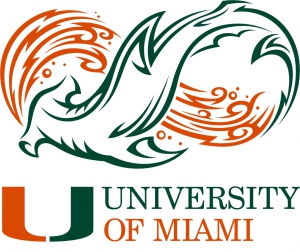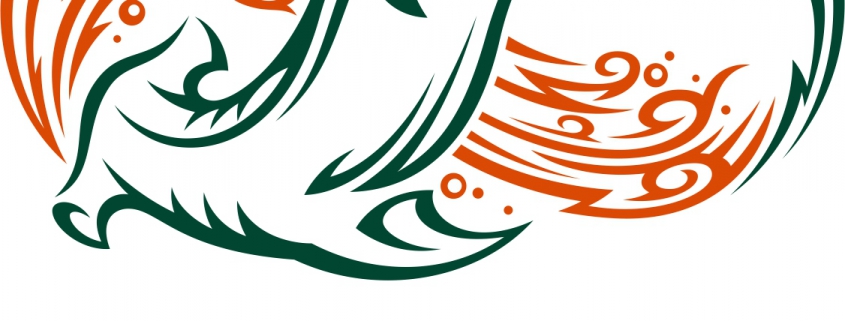2018 SRC Accomplishments
UM SRC had a productive 2018. Here are some of the highlights we are proud to share with you.
- We published seven research papers in scientific journals. These papers ranged in scientific topics from studying the effects of shark removals on fish communities to evaluating the effects of climate variability on great white shark hunting.
- Two of our research papers were featured on the covers of scientific journals, viewed below.
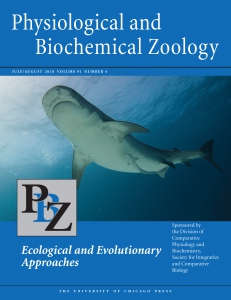
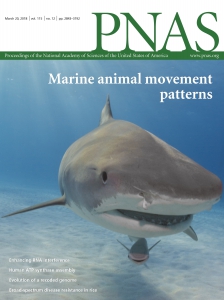
- We conducted over 100 field research trips out of Miami supporting our ongoing shark projects. Additionally, we conducted field research in Galapagos, Bahamas and South Africa.
- Our team brought over 1,200 Citizen Scientists, mostly school kids, on our research vessels to participate in our hands-on shark science. These participants were of diverse origins, representing 42 countries and another 42 states within America.
- We were honored to host “Make A Wish Foundation” on several trips to help grant children wishes to tag sharks.
- We were again proud to run our special F.I.N.S trips (Females in the Natural Sciences), providing inspirational research experiences to young girls.
- This past year our team tagged and sampled 441 different sharks of 12 different species, including 34 great hammerheads and 57 blacktip sharks. The largest shark we tagged was a 394 cm tiger shark and the smallest was a 54 cm nurse shark.
- Our team was able to satellite tag 22 sharks, including tigers, sandbars and blacktips as well as acoustically tag another 15 sharks, including nurse and great hammerhead.
- Our SRC team spoke to thousands of people in various outreach events, including exhibiting a booth at the Tortuga Music Festival and traveling to Ohio to speak to high schools.
- Our team presented scientific talks at several national and international conferences, such as the International Society of development and Comparative Immunology. SRC Director Dr. Neil Hammerschlag also presented a keynote address at both Shark International Scientific Conference in Brazil and the Morris Kahn Marine Research Station in Israel.
- Our research reached millions of people through exposure in prominent media outlets, including three shows on Discovery Channel’s Shark Week (Monster Tag, Shark Tank meets Shark Week, Tiger Shark Invasion).
- We held our second annual Summer Research Program, where college students from across North America spent several intense weeks with us in the field and laboratory conducting research.
- We spent a month in the Dry Tortugas National Park conducting shark surveys of this amazing protected area.
- Several SRC students defended their thesis, including MS student Robbie Roemer and MPS student Andriana Fragola. We wish them all the best.
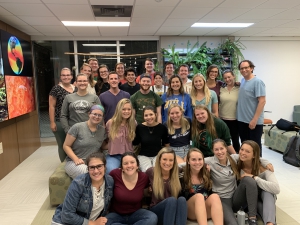
- Our social media platforms connected new audiences, with our Instagram reaching 26,400 total followers (a gain of 8,500), our Twitter reaching 5,232 followers, and our Facebook page reaching over 12,700 followers.
- We expanded the depth of our research projects, such as our research on shark immunology, studies of the effects of climate change on sharks, and our Urban Shark Project.
- We secured a boat donation from Yellowfin Yachts to support research at UM’s Rosenstiel School
- We teamed up with the Deering Estate to create a new online curriculum in Marine Conservation Science & Policy. The curriculum is written as an introduction to the subjects at an 8th grade level. However, each unit can be adapted to other grade levels from 4th to high school.
We are grateful to our active funders and contributors, especially the Batchelor Foundation Inc., the Alma Jennings Foundation, Rock the Ocean Foundation, Herbert W. Hoover Foundation, William J. Gallwey, III, Cannon Solutions America, H.W. Wilson Foundation, the Disney Conservation Fund, Heffner Fund, Interphase Materials, Hook & Tackle, 360 Destinations, L2 Platforms, Ruta Maya Coffee, NOAA, Vineyard Vines, and all generous individuals and groups who have Adopted a Shark.
Directed by Dr. Neil Hammerschlag, the Shark Research & Conservation Program (SRC) at the University of Miami conducts cutting-edge shark research while also inspiring scientific literacy and environmental ethic in youth through unique hands-on field research experiences. To impact an even larger audience from across the globe, SRC continues to use a variety of online education tools, including social media, blogs, educational videos and, online curricula. To learn more, visit www.SharkTagging.com
Thanks to the SRC team, collaborators, and supporters for another incredible year, and let’s make 2019 even better.
